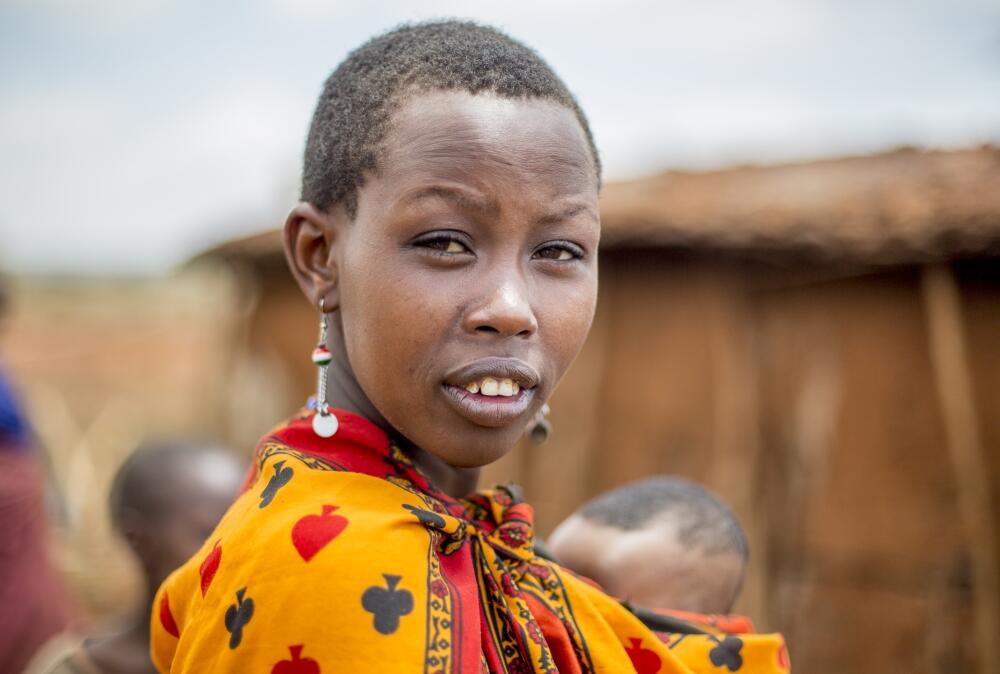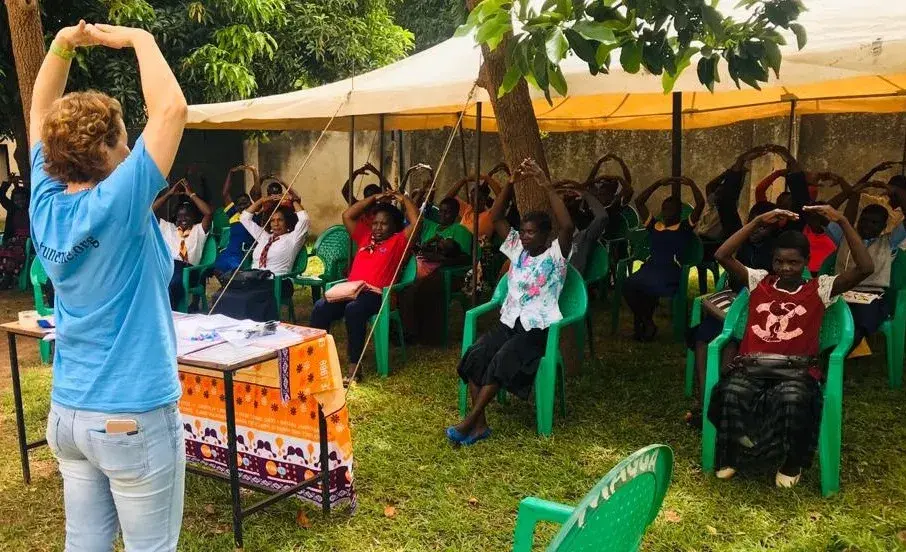Opinion editorial by Roberta Clarke (UN Women) and Dr. Julitta Onabanjo (UNFPA)
The world that marks International Women’s Day this year is vastly different from the one that honoured women this time last year. The COVID-19 pandemic continues to have devastating and far-reaching effects in even the most developed regions of the world, ravaging health, health-care systems, and economies, and causing hundreds of thousands of deaths, as countries grapple with a variety of measures to try and mitigate the impact of the pandemic.
As countries in East and Southern Africa commemorate the day under the 2021 theme of Women in Leadership: Achieving an Equal Future in a COVID-19 World, the pandemic is deepening already high poverty rates in the sub-region and further entrenching the fact that women are more likely than men to live in extreme poverty.
By December 2020, less than a year after the first case of COVID-19 was reported in Africa, more than 60 per cent of women and men in Ethiopia, Kenya, Malawi, Mozambique, and South Africa had experienced a complete loss of or decline in personal incomes due to the pandemic. Decreases in combined household incomes were experienced, with more than 7 in 10 respondents in Ethiopia and Kenya indicating declines in household incomes. A further 6 in 10 Mozambican and 5 in 10 South African respondents reported fall in household incomes.
A UN study released on 10 March 2021 on the Impact of COVID-19 on Gender Equality and Women Empowerment in East and Southern Africa finds that these reductions in income had swift and often severe ramifications for food security; in Ethiopia, Kenya, and South Africa, nearly one in five women and men did not have food for a day or more during the pandemic. The study, which was carried out in 28 countries, finds that during the pandemic, in countries such as Mozambique and Kenya, women were more likely than men to go without food due to loss of income. Indeed, more than 80 per cent of respondents in the study indicated that the prices of the food they usually buy increased during the pandemic, apart from Malawi where only three in five respondents indicated increases in food prices.
Education has been massively disrupted, in many cases more severely for girls than boys. Girls face additional vulnerabilities due to the risk of female genital mutilation and early pregnancy when they are away from school indefinitely, and child marriage particularly where families are struggling to cope financially.
UNFPA estimates that pandemic-related disruptions of initiatives to end child marriage will lead to an increase of 13 million child marriages between 2020 and 2030, due to economic hardships forcing parents to agree to child marriages for financial gain, and school closures, which have contributed to early, forced or non-consensual sexual activity. Gains made in maternal and child health are likely to regress as a consequence of COVID-19. Indeed, the pandemic has disrupted existing and planned efforts to improve maternal and child health.
Gender assessments carried out in the region show the extent to which the pandemic and associated containment measures have placed a mental and psychosocial health burden on women and men. Nearly two thirds of women in Ethiopia and Kenya and more than half their counterparts in Mozambique, Malawi, and South Africa reported suffering from mental and emotional strain since the onset of COVID-19. Concerns about contracting the virus, economic problems and worries about dying from the disease have weighed heavily on the minds of women in the region.
The burden of care and unpaid work on women and girls has remained an issue of concern throughout the pandemic, as more women and girls bear increased responsibility for passive child-minding, teaching, and providing general child care as a result of movement restriction measures in most countries. Women in all of the countries surveyed were also more likely than men to indicate that they were spending more time on unpaid domestic work during the pandemic, even while experiencing severe reductions in income and livelihood opportunities.
While previously, nearly half of the women in Burundi, Kenya, Mozambique, Zambia, and Zimbabwe reported experiencing violence by an intimate partner and up to one third of women in Uganda, Zambia, Burundi, and Kenya reported having experienced this violence in the past 12 months, the numbers have risen dramatically during the pandemic.
Early data from UNFPA on the impact of COVID-19 on gender-based violence (GBV) shows a 77 per cent increase in calls to the national hotline in Kenya and a 72 per cent increase in reported cases in protection monitoring between January and May 2020 in South Sudan. In Zimbabwe, 90 per cent of calls to national hotlines between March and May 2020 were related to intimate partner violence, while 70 per cent of women and men in Malawi and more than 50 per cent of women and men in Mozambique knew someone who has been affected by GBV since the onset of the pandemic.
There is hardly a more opportune year for International Women’s Day to highlight the gaps that remain for women and girls in the region than in the current COVID-19 era. Indeed, the priority theme of the 65th session of the upcoming Commission on the Status of Women (CSW65 (2021) on women’s full and effective participation and decision-making in public life, as well as the elimination of violence, for achieving gender equality and the empowerment of all women and girls is telling.
As we celebrate the tremendous efforts by women and girls around the world in shaping a more equal future and recovery from the COVID-19 pandemic, the importance of assessing current mitigation measures using a gender lens cannot be overstated.
Roberta Clarke is the UN Women East and Southern Africa Officer in Charge
Dr. Julitta Onabanjo is UNFPA Regional Director for East and Southern Africa





